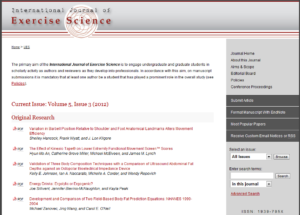The King-Devick (K-D) test is a concise, noninvasive assessment of oculomotor and cognitive function that has been shown to detect sub-optimal brain performance following sports head trauma. Used in a number of sports as a sideline concussion assessment tool, the K-D test can be administered by non-medical personnel. However, the issue regarding the effect of exercise on K-D performance has not been fully explored. Using a randomized crossover design, this study aimed to compare the effect of two intensities of exercise on K-D performance. Twenty males (21.2 ± 1.9 years) completed the KD test prior to and after 15 min of either moderate (65% of age-predicted maximal heart rate) and high intensity (80% of age-predicted maximal heart rate) exercise bouts, separated by one week.
Significant differences were found in working heart rate and ratings of perceived exertion consistent with exercise intensities. K-D performance did not change after moderate exercise, however a significant improvement (5.4%) was observed after high intensity exercise. Based upon these findings, it appears that high intensity exercise can influence test performance and administrators of the test need to be aware of the arousal state a player is prior to K-D test administration to ensure objective measurement.
Summary Points:
- Our results concur with previous research, our findings showing improved K-D performance after the intense exercise.

